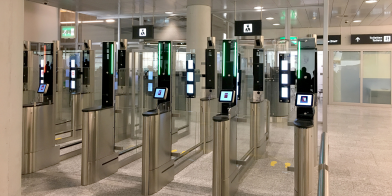12
2019 in Review
The Center for Security Studies (CSS) at ETH Zürich would like to wish you all a happy holiday season. During the holidays, we look back over some of the core themes covered by our Think Tank and researchers in 2019. These include cyber security politics; Artificial Intelligence (AI); China’s “Belt and Road Initiative” and Eurasia’s geostrategic importance; Euro-Atlantic security; mediation and peace promotion; military doctrine and arms procurement and socio-technical resilience and disaster preparedness
Can Terrorism Abroad Influence Migration Attitudes at Home?
Does a terrorist attack in Paris or London influence public opinion on migration in Berlin or Vienna? A recent study by Tobias Böhmelt, Vincenzo Bove and CSS researcher Enzo Nussio published in the American Journal of Political Science demonstrates that public opinion on migration “at home” is indeed systematically driven by terrorism in other countries.
Dilemmas and Trade-Offs in Peacemaking: A Framework for Navigating Difficult Decisions
The activity of peacemaking is inherently characterized by competing priorities that do not seem to be attainable at the same time. This article by Anne Isabel Kraus, Lars Kirchhoff, Tatiana Kyselova, Julia Palmiano Federer as well as CSS’ Simon J. A. Mason and Owen Frazer focuses on the question of how third parties can deal with dilemmas and trade-offs when mediating violent political conflicts.
New Technologies for Border Controls in Europe

Rapidly increasing mobility, especially with regards to air traffic, poses new challenges for the border agencies in Europe, argues Julian Kamasa in this new CSS Analysis. New technologies may help to manage the movement of people and ensure security. As a Schengen member, Switzerland can benefit from these developments. However, a number of adaptations are required.
The Middle East and China’s Belt and Road Initiative
China’s presence in the Middle East is on the rise, particularly in the framework of its Belt and Road Initiative. As the US draws down its commitments in the region, Europe will need to consider what greater Chinese involvement in the region means for its interests, argues Lisa Watanabe in this new CSS Analysis.